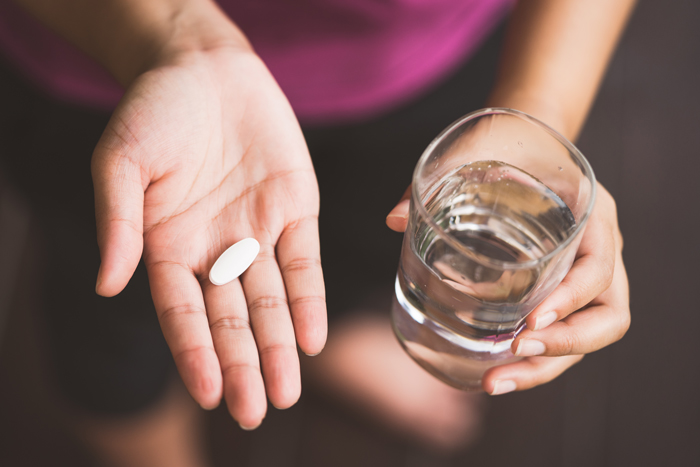
Advances in modern science and medicine that promise to make you stronger, smarter, faster, or healthier have long captured the imagination of Americans (remember The Matrix and Limitless movies?). So, of course, with such appealing claims, it’s no wonder that health and beauty supplements have always been at the forefront of medicine.
Well, do supplements really work? Ahead, four health experts share what they really think about beauty supplements.
Do supplements work?
According to Steven Salzberg, a professor of medicine at John Hopkins University, the simple answer is…well, not really. When asked why people keep buying supplements, he responded, “It seems reasonable that if a little bit of something is good for you, then more should be better for you. It’s not true. Supplementation with extra vitamins or micronutrients doesn’t really benefit you if you don’t have a deficiency.”
What’s the downside?
People who have access to a variety of vitamin-rich foods don’t normally have severe deficiencies, so taking a once-a-day vitamin could actually be doing more harm than good. Just last year, a heart disease study was published by Johns Hopkins University that concluded that calcium supplements could increase the risk of plaque buildup in arteries and heart damage. After the results of the study were published, Dr. John Anderson at the University of North Carolina Chapel Hill commented, “There is clearly something different in how the body uses and responds to supplements versus intake through diet that makes it riskier.”
Are supplements regulated?
“Because commercially available vitamins, minerals, herbs, etc. are lumped together as supplements, the FDA doesn’t regulate it,” says Dr. Monique Tello of Harvard Medical School. “When we ingest processed, concentrated, and artificially packaged supplements, we may be doing ourselves harm. It may be toxic, ineffective, or contaminated (all of which are not uncommon).”
So who should take supplements?
On the flip side, Madelyn Fernstrom, TODAY’s health and nutrition editor, points out, “In a perfect world, we would all eat a variety of fruits and vegetables and we would all exercise regularly, but that’s not reality.” Some individuals and populations, however, may benefit from a little supplementation to bring them up to the daily recommended intake. Multivitamins, particularly for if you need to fill nutritional gaps, can be extremely effective and worthwhile.
At the end of the day, there’s no supplement for a well-balanced diet, but we suggest consulting your physician to learn what options are best for you.
Mental health matters just as much as physical health, especially as you get older. So check out five mental health exercises you should do at every age.
xx, The FabFitFun Team





